CalDB 4.5.6 Public Release Notes
Public Release Date: 28 FEB 2013
SDP Installation Date: 2013-02-27T17:00:00 (UTC)
I. INTRODUCTION
CalDB 4.5.6 is an upgrade to the Chandra CalDB, which includes the following items:
- ACIS T_GAIN Epoch 52
- ACIS Blank-sky BKGRND Group F
- ACIS Substitute CTI files, Sep-Oct 2005 (NOTE: Requires CIAO 4.5 or later version.)
- ACIS T_GAIN Validity Overlap Error Corrections
- ACIS EVTSPLT Validity Overlap Error Correction
For the CIAO 4.5 / CalDB 4.5.6 release notes see How CalDB 4.5.6 Affects Your Analysis.
II. SUMMARY OF CHANGES
A. ACIS T_GAIN Epoch 52
| Location: | $CALDB/data/chandra/acis/t_gain/ |
| Filenames: | acisD2012-08-01t_gainN0005.fits acisD2012-08-01t_gainN0006.fits acisD2012-11-01t_gainN0002.fits acisD2012-11-01t_gain_biN0002.fits |
The periodic ACIS T_GAIN correction upgrade for Nov 2012 - Jan 2013 has been released. The corrections are at nominal/expected levels of less than 2% of the energy value. This upgrade as usual affects observation data taken over Epoch 52 and 51, and so would update PHAs for OBS_IDs taken since 01 Aug 2012. Users with such datasets are encouraged to revalidate their analysis results after reprocessing their data with the upgraded CalDB files. For specific details of the new calibrations in this release, see the technical details section below.
See the ACIS T_GAIN why page for more information.
PIPELINES/TOOLS AFFECTED:
DS and CIAO level 1 (re)processing tool acis_process_events
Also: CIAO reprocessing script chandra_repro
THREADS AFFECTED:
Reprocessing Data to Create a New L2 Events File
B. ACIS Blank-sky BKGRND Group F
| Location: | $CALDB/data/chandra/acis/bkgrnd/ |
| Filenames: | Blank-field + particle backgrounds: acis0iD2009-09-21bkgrnd_ctiN0001.fits acis1iD2009-09-21bkgrnd_ctiN0001.fits acis2iD2009-09-21bkgrnd_ctiN0001.fits acis2sD2009-09-21bkgrnd_ctiN0001.fits acis3iD2009-09-21bkgrnd_ctiN0001.fits acis3sD2009-09-21bkgrnd_ctiN0001.fits acis5sD2009-09-21bkgrnd_ctiN0001.fits acis6iD2009-09-21bkgrnd_ctiN0001.fits acis6sD2009-09-21bkgrnd_ctiN0001.fits acis7sD2009-09-21bkgrnd_ctiN0001.fits acis8sD2009-09-21bkgrnd_ctiN0001.fits Particle only (ACIS under cover) backgrounds: acis0D2009-09-21bgstow_ctiN0001.fits acis1D2009-09-21bgstow_ctiN0001.fits acis2D2009-09-21bgstow_ctiN0001.fits acis3D2009-09-21bgstow_ctiN0001.fits acis5D2009-09-21bgstow_ctiN0001.fits acis6D2009-09-21bgstow_ctiN0001.fits acis7D2009-09-21bgstow_ctiN0001.fits |
The particle background levels for the respective ACIS chips have been decreasing with the increasing the solar activity in recent years, and the ACIS Calibration team has responded with new source-free blank-sky and under-cover (ACIS-stowed) background event lists. These event lists will become effective at TT=369878466.184s, or (UTC) 2009-09-21T00:00:00. The files are designated Group F according to former ACIS Calibration scientist Maxim Markevich's designation, because they are now the sixth set (in time) of BKGRND event lists for ACIS. NOTE: Only the CTI-corrected events cases have been included in this release. A future release will include the ACIS BI chip events without the series and parallel CTI corrections applied, for relevant GRADED DATAMODE observations.
CalDB file selection using the acis_bkgrnd_lookup script has been set up automatically to retrieve the new Group F event lists rather than the corresponding Group E ones, for OBS_IDs with DATE-OBS on or later than 2009-09-21T00:00:00 (UTC). Note however, that a single configuration has not been updated in the new set, namely the case for ACIS-7 with ACIS-I in the focal plane (filename acis7iD...bkgrnd_cti.fits). This is because of a lack of statistics for generating a background set for this configuration. (ACIS-7 is usually not turned on for ACIS-I observations anymore due to the FEP overload workaround.)
Current ACIS BKGRND calibration scientist Terry Gaetz has produced the new set of ACIS BKGRND input files in a fashion that corresponds with the previous sets. The files have then been converted according the the previous prescription by Chandra CalDB Manager DE Graessle to CalDB/CIAO - compatible format.
Details regarding which observations and what procedures were used in compiling these new datasets are included in the technical details section below. We will also include some additional information regarding the time-dependence of the BKGRND files moving from Group E and Group F at a later date.
PIPELINES/TOOLS AFFECTED:
CIAO tool acis_bkgrnd_lookup
CIAO tool reproject_events
THREADS AFFECTED:
Analysing the ACIS Background with the "Blank-Sky" Files
C. ACIS Substitute CTI files, Sep-Oct 2005
| Location: | $CALDB/data/chandra/acis/cti/ |
| Filenames: | acisD2005-09-16ctiN0005B.fits acisD2005-09-16ctiN0007.fits |
During the period of (UTC) 2005-09-16T12:00:00 through 2005-10-15T11:00:00 of the Chandra mission timeline, there was an onboard ACIS anomaly in which the focal plane temperature "FP_TEMP" was very briefly out of specification, and also the FP_TEMP values telemetered from the spacecraft during this period were wrong by +1.3 Kelvin. There are some 71 ACIS OBS_IDs included in this period affected by the error. The FP_TEMP error has been noted in the VV reports in each and every case.
This would have presented no problem with calibrations at the 2005 time; however, with the advent of the temperature-dependent CTI corrections in late 2010 (CalDB 4.4.0, November 02, 2010) the FP_TEMP error (which appears in the MTL1 files of the standard data products, generates a small error in the T-CTI corrections. CIAO users of these observations, who reprocessed them with CalDB 4.4.0 or later, will have propagated the FP_TEMP error into their T-CTI-corrected event lists. The degree of the error is discussed in the technical details section below.
These 71 OBS_IDs are being reprocessed for the archive as part of the Reprocessing IV intiative, now for the first time including the T-CTI correction. Reconsidering the FP_TEMP error, the CXC Data System has elected not to alter the software to generate corrected FP_TEMPs, but rather to install substitue T-CTI files in CalDB, which include a baseline FP_TEMP value (called FP_TEMP0 in the Block 2 header) that is corrected by +1.3K. This will adjust the T-CTI corrections to their proper values, event by event.
Notice to users of CIAO 4.4 and previous verions: This CalDB fix to the FP_TEMP anomaly will not work with CIAO 4.4 or earlier versions, because of a bug in the caldb4 software which persists in CIAO 4.4. The bug prevents the software from selecting either of the two substitute T-CTI files above. An upgrade to the caldb4 software in CIAO 4.5 allows for proper selection of CalDB files with overlapping validity date ranges, and permits a fix of the sort we are implementing here.
Users who have reprocessed any of these datasets with the T-CTI correction in CIAO would have selected one of the following two files from CalDB, whose filenames would be stored in the "CTIFILE" keyword of their L2 events lists:
acisD2002-08-01ctiN0007.fits (DATAMODE=FAINT or VFAINT) acisD2002-08-01ctiN0005B.fits (DATAMODE=GRADED or CC33_GRADED)
Those users should review the technical details section below, and consider reviewing their results with the newly reprocessed data from the archive, or with data repro'd in CIAO with CalDB 4.5.6 installed.
See the CTI why page for more information regarding the ACIS CTI correction itself and what it does.
PIPELINES/TOOLS AFFECTED:
DS and CIAO level 1 (re)processing tool acis_process_events
Also: CIAO reprocessing script chandra_repro
THREADS AFFECTED:
Reprocessing Data to Create a New L2 Events File
D. ACIS T_GAIN Validity Overlap Error Corrections
| Location: | $CALDB/data/chandra/acis/t_gain |
| Filenames: | acisD2005-05-01t_gainN0006.fits acisD2005-08-02t_gainN0006.fits acisD2006-05-01t_gainN0006.fits acisD2006-08-01t_gainN0006.fits acisD2007-08-01t_gainN0006.fits |
The CXC Data System has detected T_GAIN validity date overlap problems with one science obsevation and four ERs wherein acis_process_events produces a WARNING of "problem reading the tgain file". The specific cases are listed in the Table below with the T_GAIN filename, the affected OBS_ID, and the changes made to the Calibration Validity End Date and Time keywords in CalDB 4.5.6. Hence, with the installation of the CalDB 4.5.6 upgrade, the WARNINGs in acis_process_events will be eliminated. Only the named OBS_IDs are affected by the specific changes in the table.
| CalDB Filename | Current CVED | Current CVET | New CVED | New CVET | OBS_ID |
| acisD2005-05-01t_gainN0006.fits | 2005-08-02T00:00:00 | 00:00:00 | 2005-08-02T02:00:00 | 02:00:00 | 5954 |
| acisD2005-08-02t_gainN0006.fits | 2005-11-01T00:00:00 | 00:00:00 | 2005-11-02T00:00:00 | 00:00:00 | 59357 |
| acisD2006-05-01t_gainN0006.fits | 2006-08-01T00:00:00 | 00:00:00 | 2006-08-02T00:00:00 | 00:00:00 | 58854 |
| acisD2006-08-01t_gainN0006.fits | 2006-11-01T00:00:00 | 00:00:00 | 2006-11-02T00:00:00 | 00:00:00 | 58719 |
| acisD2007-08-01t_gainN0006.fits | 2007-11-01T00:00:00 | 00:00:00 | 2007-11-02T00:00:00 | 00:00:00 | 58147 |
| acisD1996-11-01evtspltN0002.fits | 2005-07-01T00:00:00 | 00:00:00 | 2005-07-02T00:00:00 | 00:00:00 | 6318 |
PIPELINES/TOOLS AFFECTED:
DS and CIAO level 1 (re)processing tool acis_process_events
Also: CIAO reprocessing script chandra_repro
THREADS AFFECTED:
Reprocessing Data to Create a New L2 Events File
E. ACIS EVTSPLT Validity Overlap Error Correction
| Location: | $CALDB/data/chandra/acis/evtsplt/ |
| Filename: | acisD1996-11-01evtspltN0002.fits |
The CXC Data System has discovered a calibration validity date overlap error between the two existing ACIS EVTSPLT thresholds files in CalDB, wherein processing a single OBS_ID (6318) results in failure to find a suitable file. This produces a warning in acis_process_events and causes a default threshold value to be applied to the data. In addtion, we have also discovered a bug in the acis_process_events software wherein failure to find the EVTSPLT thresholds file causes the T_GAIN application to be switched off, resulting in a WARNING message that there was a problem reading the T_GAIN file. Again, only OBS_ID 6318 is affected. While using psets to acis_process_events for both the "threshfile" and "tgainfile" parameters is sufficient to override these problems, a permanent correction to the CalDB eliminates them altogther.
The correction is listed in Table 1 above in the bottom row, wherein the file to be corrected is an EVTSPLT file and not a T_GAIN file for this case. OBS_ID 6318 is noted there prominently. Note also that there is no need to alter the appropriate T_GAIN file for CalDB selection, as this happens automatically when the EVTSPLT WARNING is eliminated by the above fix.
PIPELINES/TOOLS AFFECTED:
DS and CIAO level 1 (re)processing tool acis_process_events
Also: CIAO reprocessing script chandra_repro
THREADS AFFECTED:
III. TECHNICAL DETAILS
A. ACIS T_GAIN Epoch 52
The ACIS time-dependent gain corrections (T_GAIN) have recently been updated for current changes from the previous T_GAIN epoch, specifically Epoch 52, which was November 2012 through January 2013. With the addition of these new corrections, derived from ACIS External Cal Source (ECS) data taken during radiation zone passes, the CalDB files extending from August 01 2012 through October 2012 (i.e. Epoch 51) have been finalized, and new non-interpolating T_GAIN files are now implemented for Epoch 52.
The magnitudes (in eV) of the new gain corrections, versus photon energy, are given in Figs. 1-3 below. The corrections are of the usual order in magnitude, specifically less than 2.0% of the photon energy value. Fig. 1 below gives the corrections for the ACIS-I aimpoint on chip ACIS-3, for the CTI-corrected case, which is the only one applicable to FI chips. Figure 2 gives the corrections for the ACIS-S aimpoint on ACIS-7, for the case where the BI chips are CTI-corrected. Finally Fig. 3 gives the corrections for ACIS-7 for NON-CTI-corrected BI chips. These would be relevant to GRADED DATAMODE observations with ACIS-S, for example.
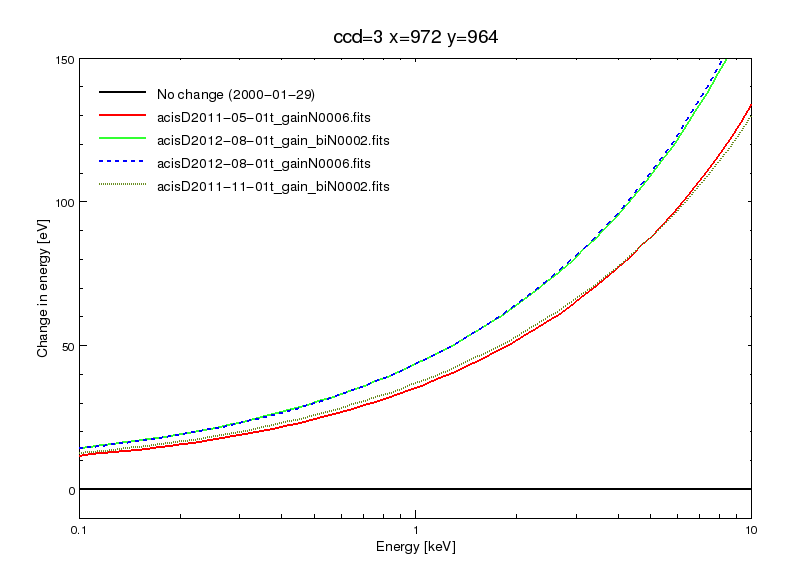
Fig. 1: ACIS-I3 aimpoint T_GAIN corrections in eV versus photon energy.

Fig. 2: ACIS-S3 CTI-corrected aimpoint T_GAIN corrections in eV versus photon energy.
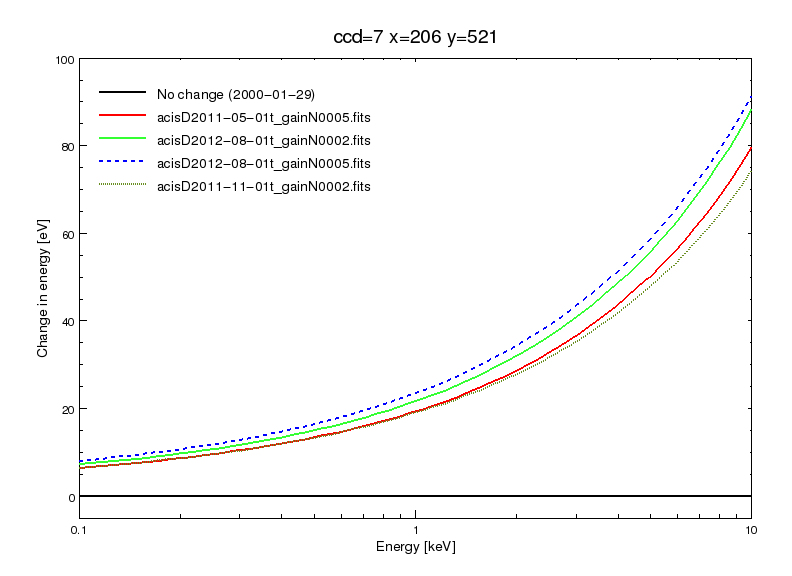
Fig. 3: ACIS-S3 non-CTI-corrected aimpoint T_GAIN corrections in
eV versus photon energy.
B. ACIS Blank-sky BKGRND Group F
The ACIS Group F BKGRND files cover the most recent portion of the solar cycle, beginning roughly with the solar minimum, with the count rates declining with time as the solar activity has increased. Whereas Group E (those effective as of 2005-05-01) were taken during a period of increasing particle count rate, Group F covers a period of decreasing count rate, and the decrease has been somewhat more rapid than the preceeding rise. The hence the rates for Group F are somewhat lower.
It appears the spectra have not changed a great deal going from Group E to F, though that is still under some study by the Calibration Team. See Figures 4 - 7 below.
In each case, the E and F spectra are plotted for both the "blank sky" and "stowed" datasets. The spectra are binned to a nominal 50 eV binning. All spectra are normalized by the average in the 9.0-12.0 keV band. Figs 4 and 6 are for the full list of events, while Figs. 5 and 7 are filtered on "status=0" ("VF cleaning") as would be done for VFAINT observations.

Fig. 4: The full spectra (no VF cleaning) for ACIS-I3 background
events, for Groups E and F, both blank-field and ACIS-stowed datasets.

Fig. 5: The same ACIS-I3 background spectra as in Fig. 4, but with VF cleaning.

Fig. 6: ACIS-S3 background spectra from Groups E and F, for both
blank-field and ACIS-stowed datasets.
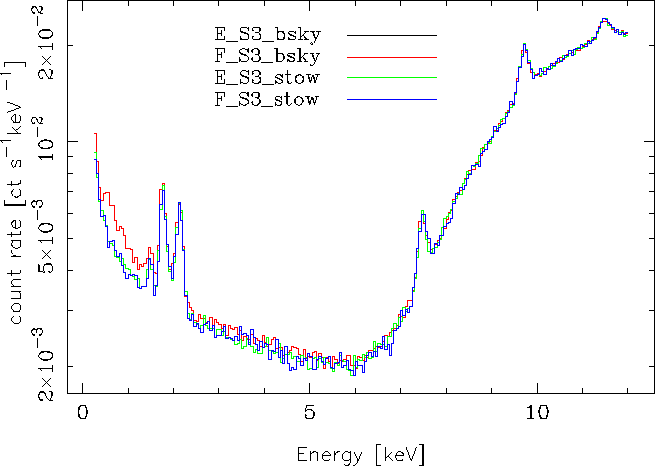
Fig. 7: The same ACIS-S3 background spectra as in Fig. 6, but
with VF cleaning.
The ACIS Background Calibration web page is being given a significant reworking, and will be republished as soon as it is ready.
ACIS background calibration scientist Terrance Gaetz is planning to re-optimize the ACIS BKGRND epochs to cover the particle background more effectively by recompiling the existing data sets to cover the solar maximum and minimum more selectively, which will give a better representation of the background variability with time. This re-optimization would replace the existing six datasets with a new ACIS BKGRND library of events lists in the future.
The text file README_ACIS_BKGRND_GROUPF.txt gives the details regarding the compilation of the eighteen events lists that are included with the Group F BKGRND release.
C. ACIS Substitute CTI files, Sep-Oct 2005
The error in the values of FP_TEMP primarily affects the pulse height data (i.e. the values of PHA, ENERGY, and PI). The effect is pulse height dependent. For example, see Figs. 8-11 below. Figs. 8 and 9 are for OBS_ID 5701, which has a relatively low focal-plane temperature of the files with anomalous temperatures. Figure 8 shows the fractional change in the value of PI v. PI for 5701. The different colors are for different CCDs. Figure 9 shows the fractional change in PI v. ENERGY and has been limited to the vertical range from -0.1 to +0.1 (i.e. from -10% to +10%). The energy dependence of the effect is evident and the effect can be greater than 5% (either positive or negative), particularly at lower energies, but is typically smaller than 5%. Figures 10 and 11 are for OBS_ID 6091 and for ACIS radiation-zone ER 59430, respectively. OBS_IDs 6091 and 59430 have relatively high focal-plane temperatures of the files with anomalous temperatures.
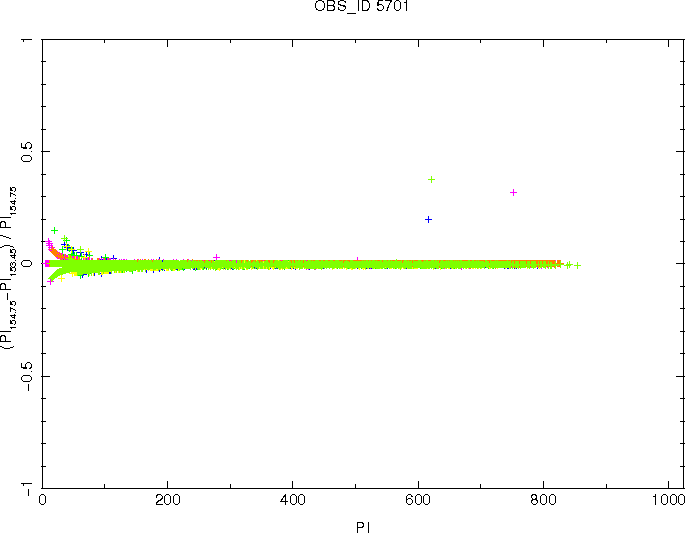
Fig. 8: For OBS_ID 5701, the fractional change in the value of PI
versus PI. OBS_ID 5701 has a comparatively low value for FP_TEMP.
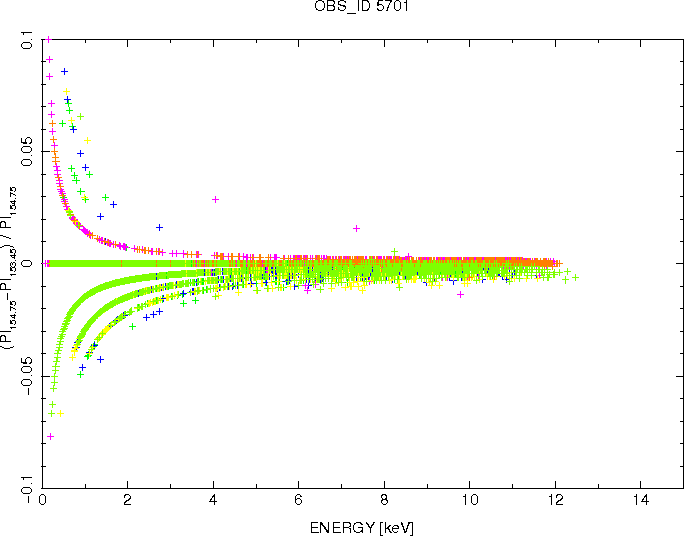
Fig. 9: Again for OBS_ID 5701, the fractional change in PI versus
photon energy, with the upper and lower limits set at +/-10%.
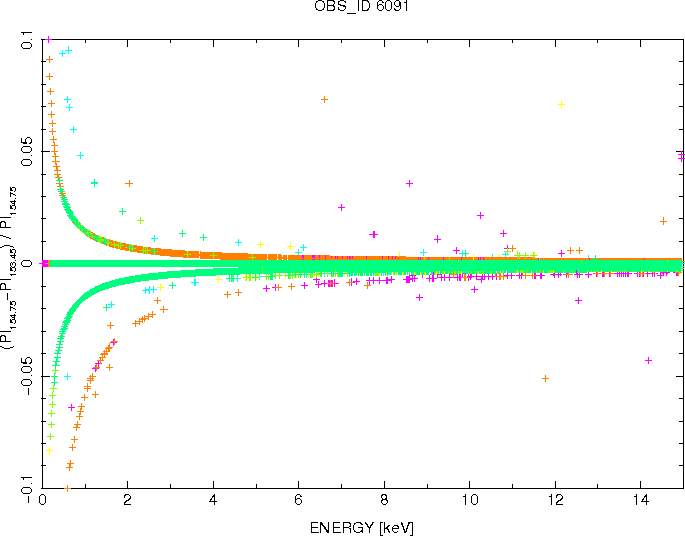
Fig. 10: As in Fig. 9 above but for OBS_ID 6091, which has a
relatively high value of FP_TEMP.
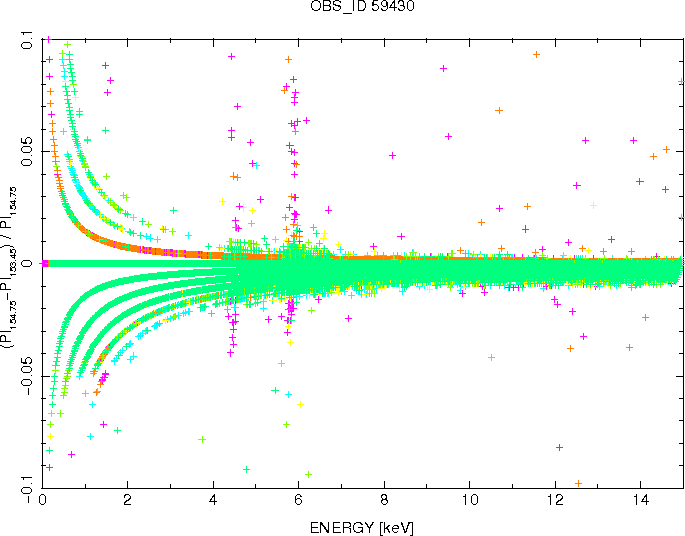
Fig. 11: Again as in Fig. 9 above, but for the ACIS CTI monitoring
ER 59430, which has a relatively high FP_TEMP.
The error in the values of FP_TEMP also affects the values of FLTGRADE and GRADE, but not very often.
Since the sub-pixel algorithm EDSER is ENERGY dependent, the locations of the events will be slightly different as a result of the FP_TEMP anomaly. However, these changes should be small.
Given these indications, then, it is suggested that users who have applied the temperature-dependent CTI correction to the datasets taken with anomalous MTL1 FP_TEMP values should review their low energy (i.e. ≤ 1.0 keV) results. They may want to consider using the Repro IV archival data, or equivalently reprocessing with CIAO 4.5 and CalDB 4.5.6 to verify that the effects of the FP_TEMP anomaly on their analysis is not significant.